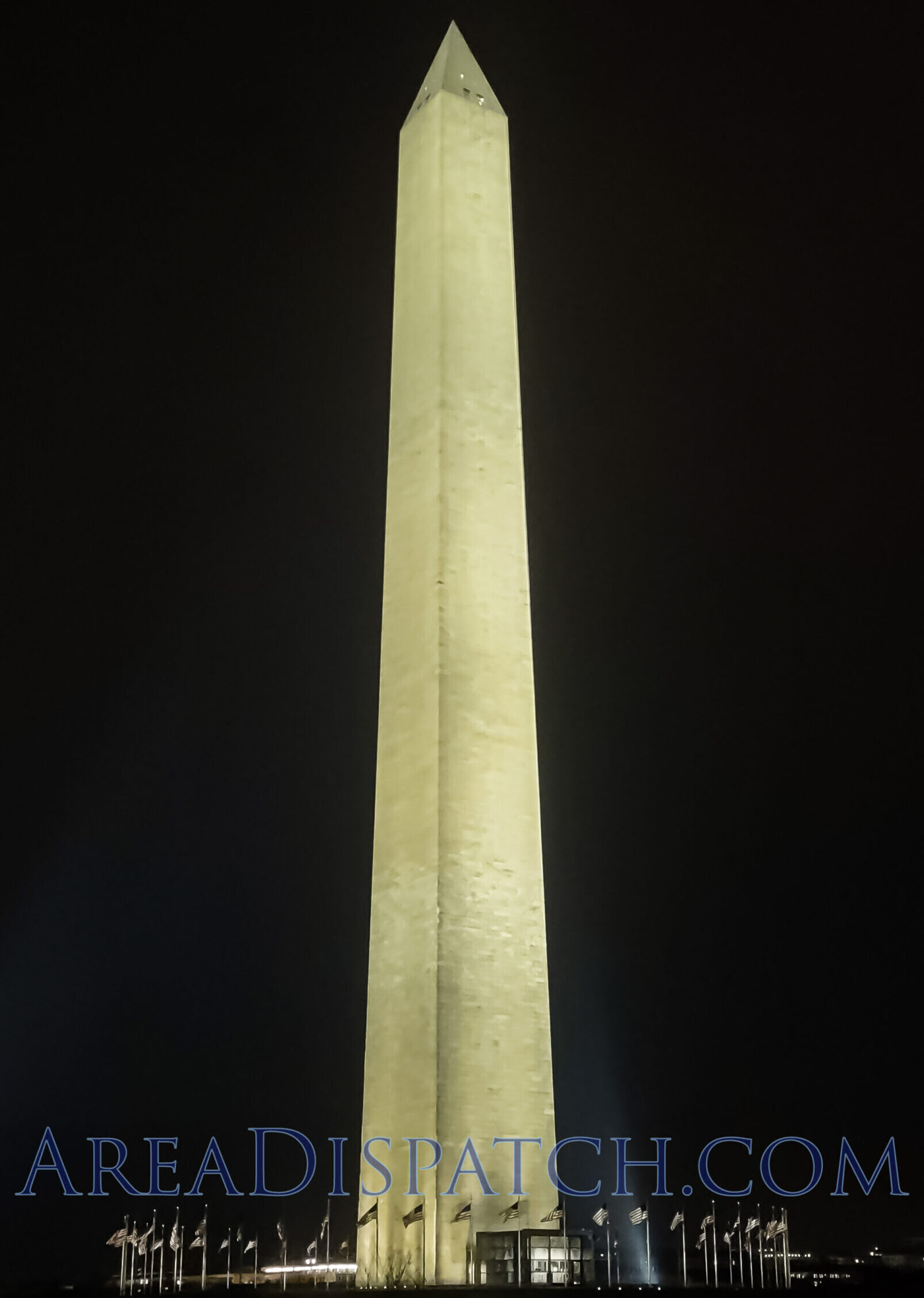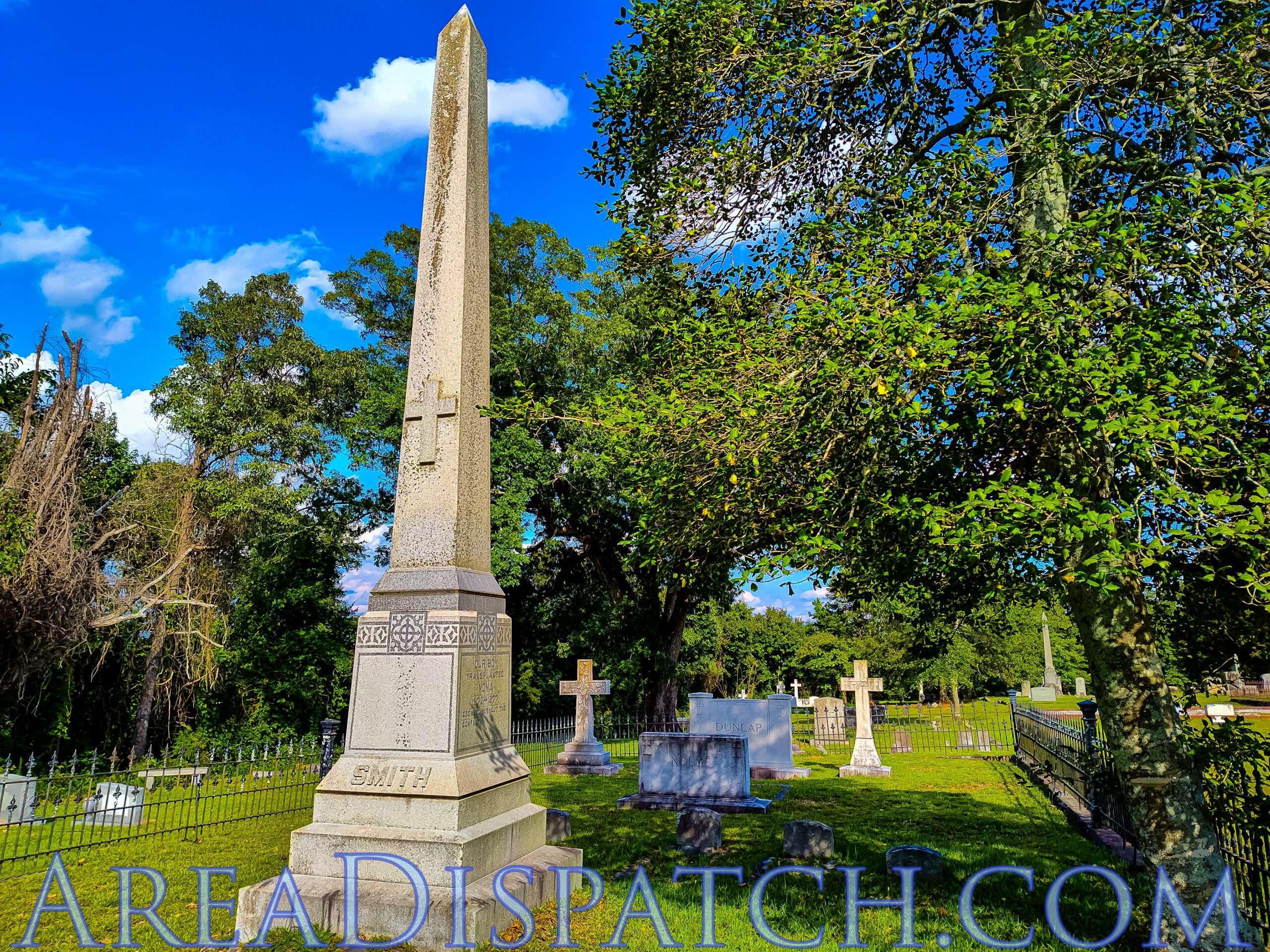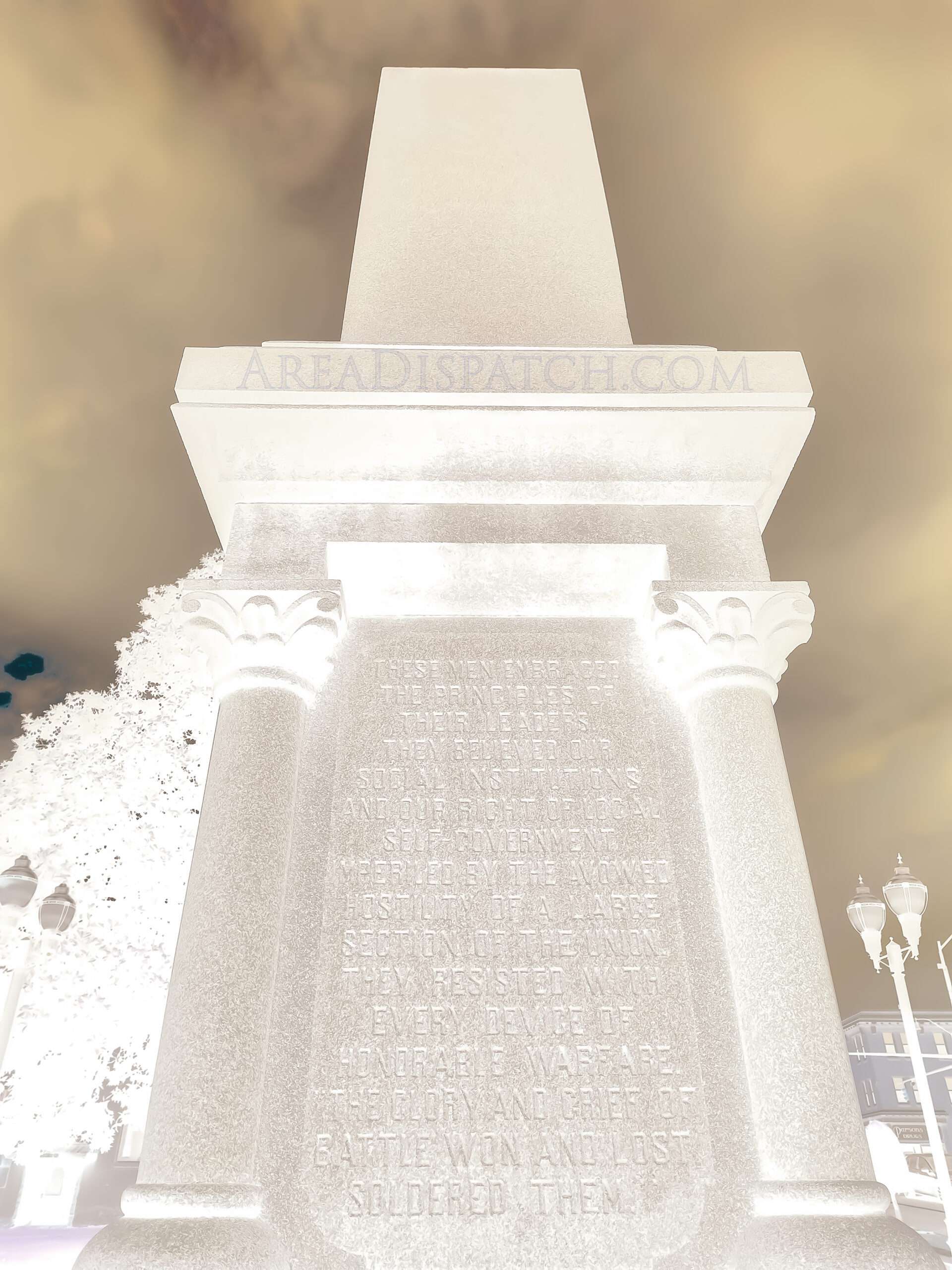
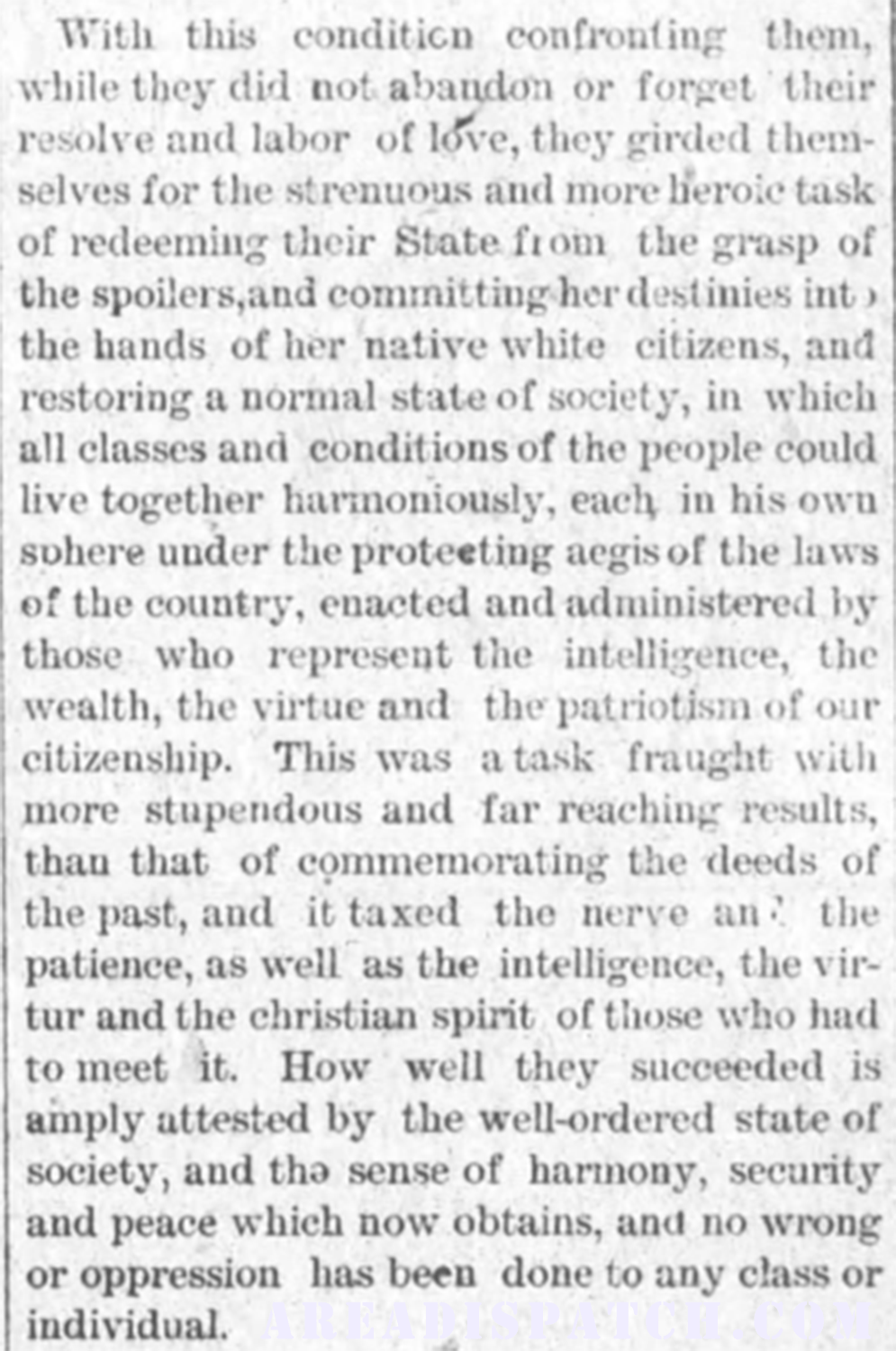
“… committing her destinies into the hands
of her native white citizens…”
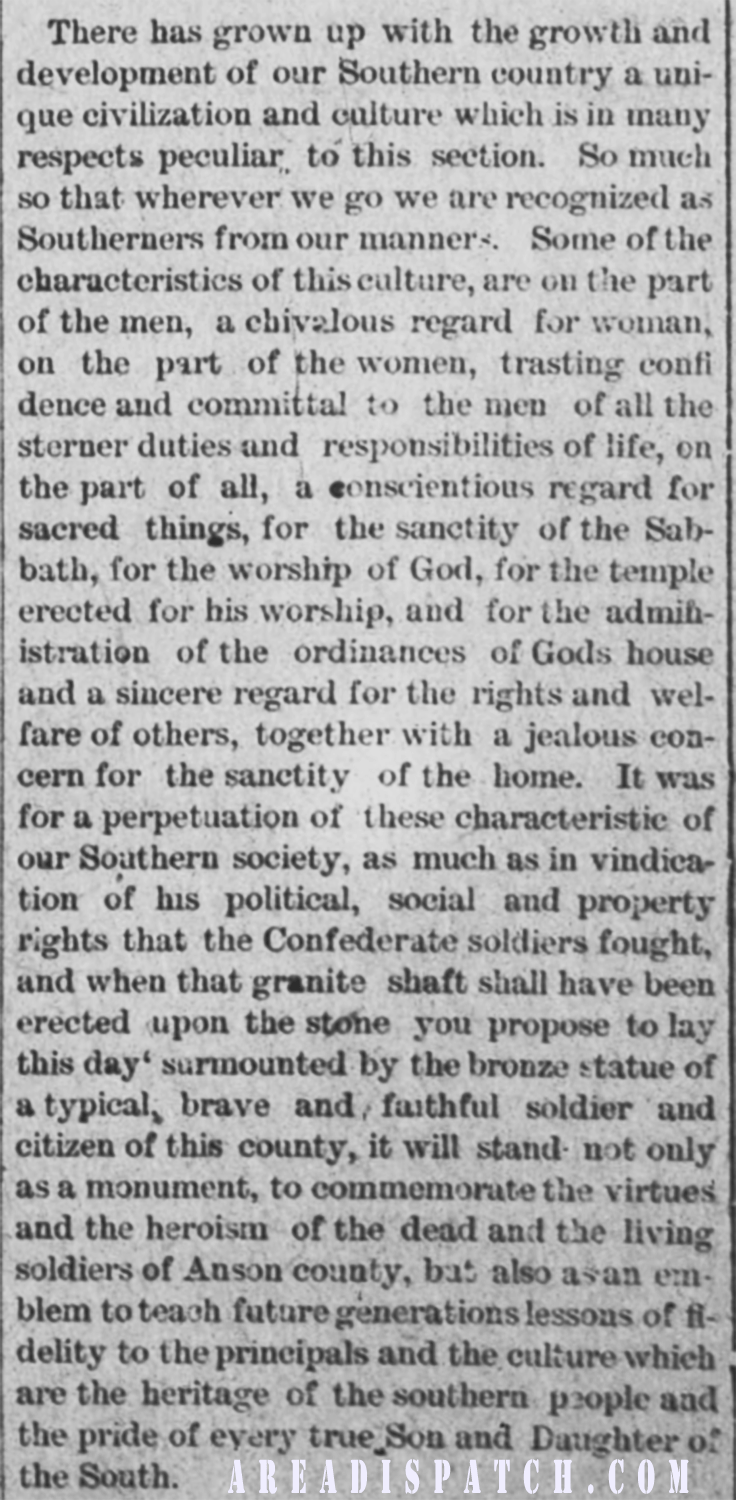
“… an emblem to teach future generations…”
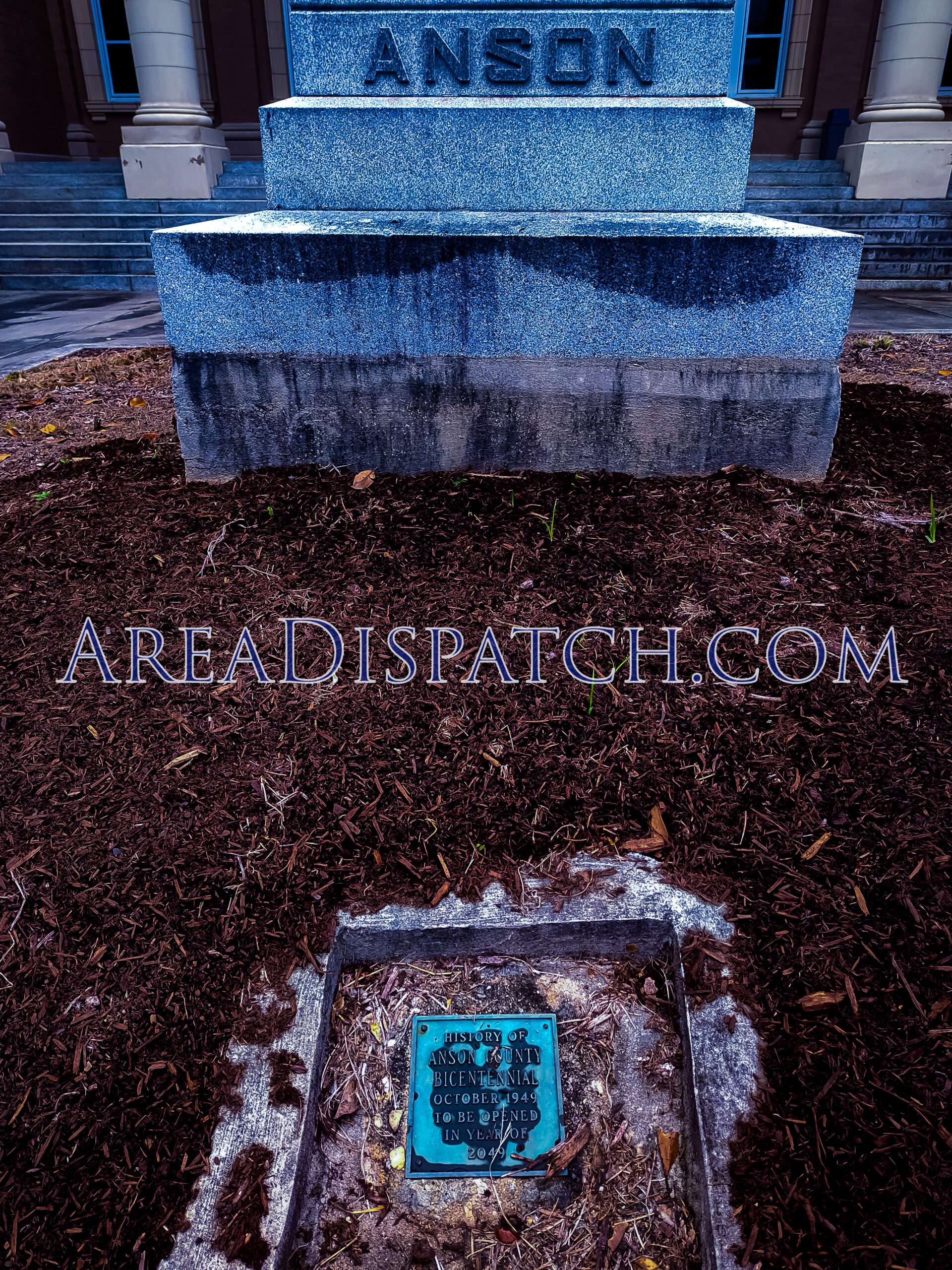
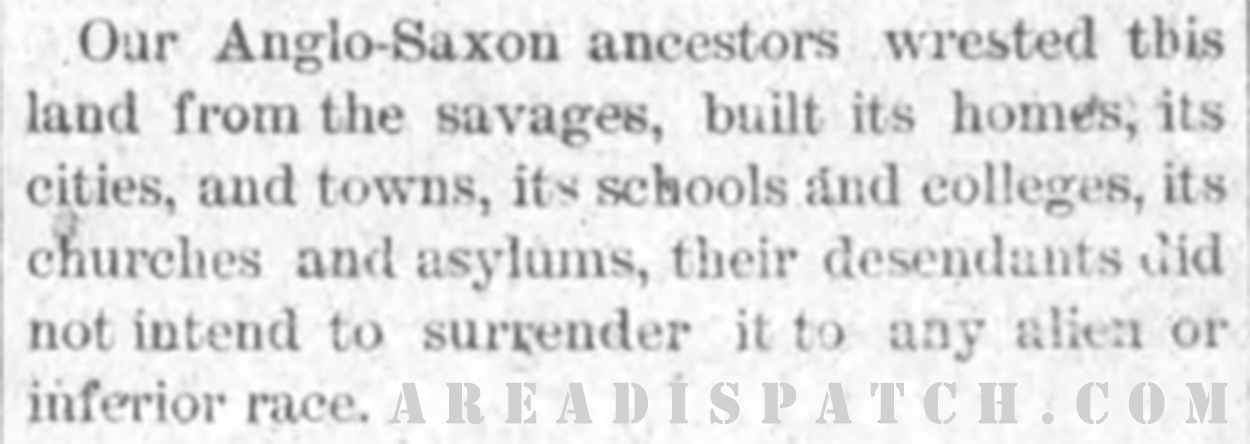
“… their descendants did not intend to
surrender it to any alien or inferior race.”
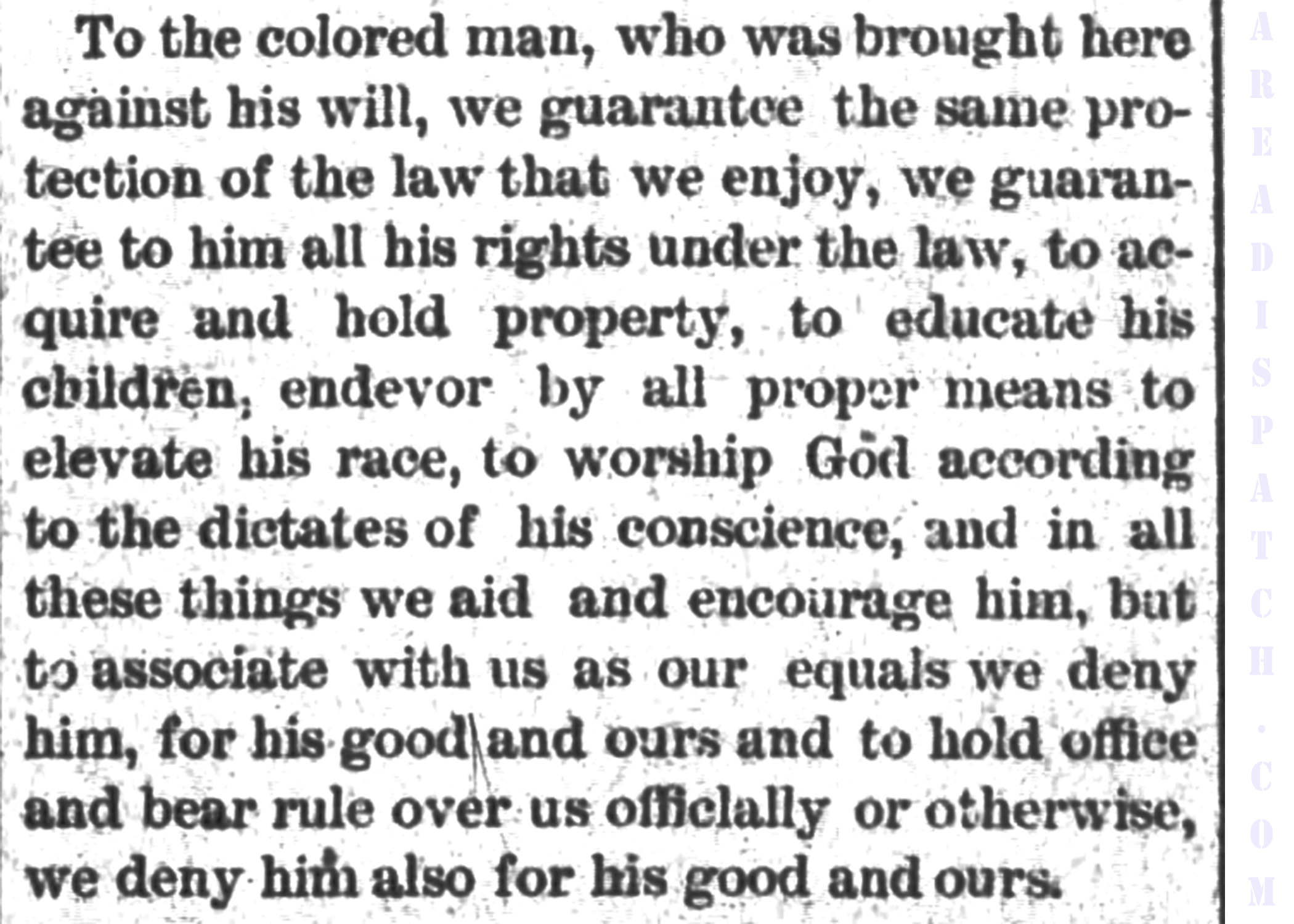
“… but to associate with us as our equals we deny him…”
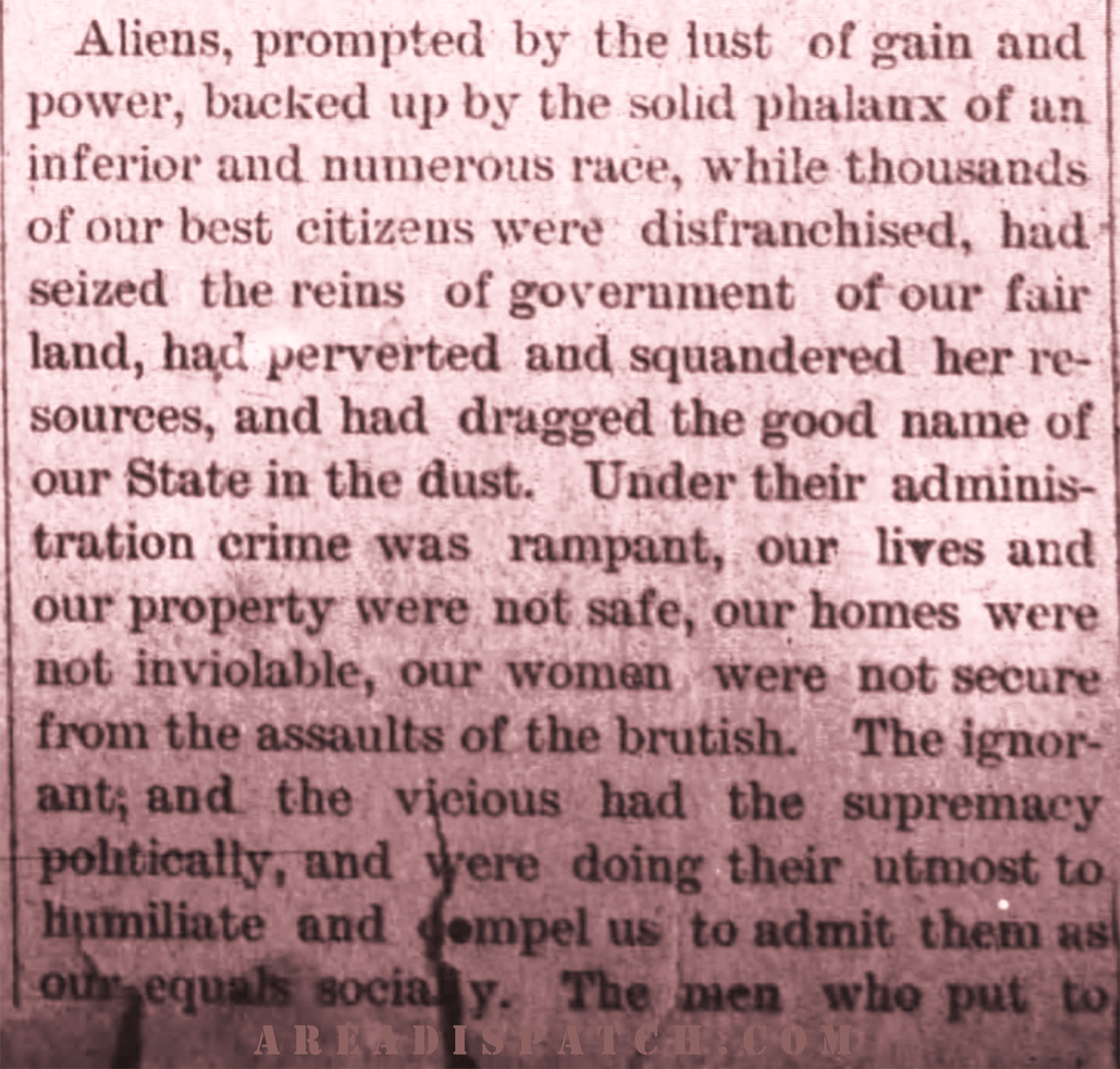
“The ignorant, and the vicious had the supremacy politically,
and were doing their utmost to humiliate and
|compel us to admit them as our equals socially.”

The suffrage provided under the 15th Amendment to black men and the temporary disenfranchisement of Confederate officials/officers
appears to have gained the black population of the county
political “supremacy.”

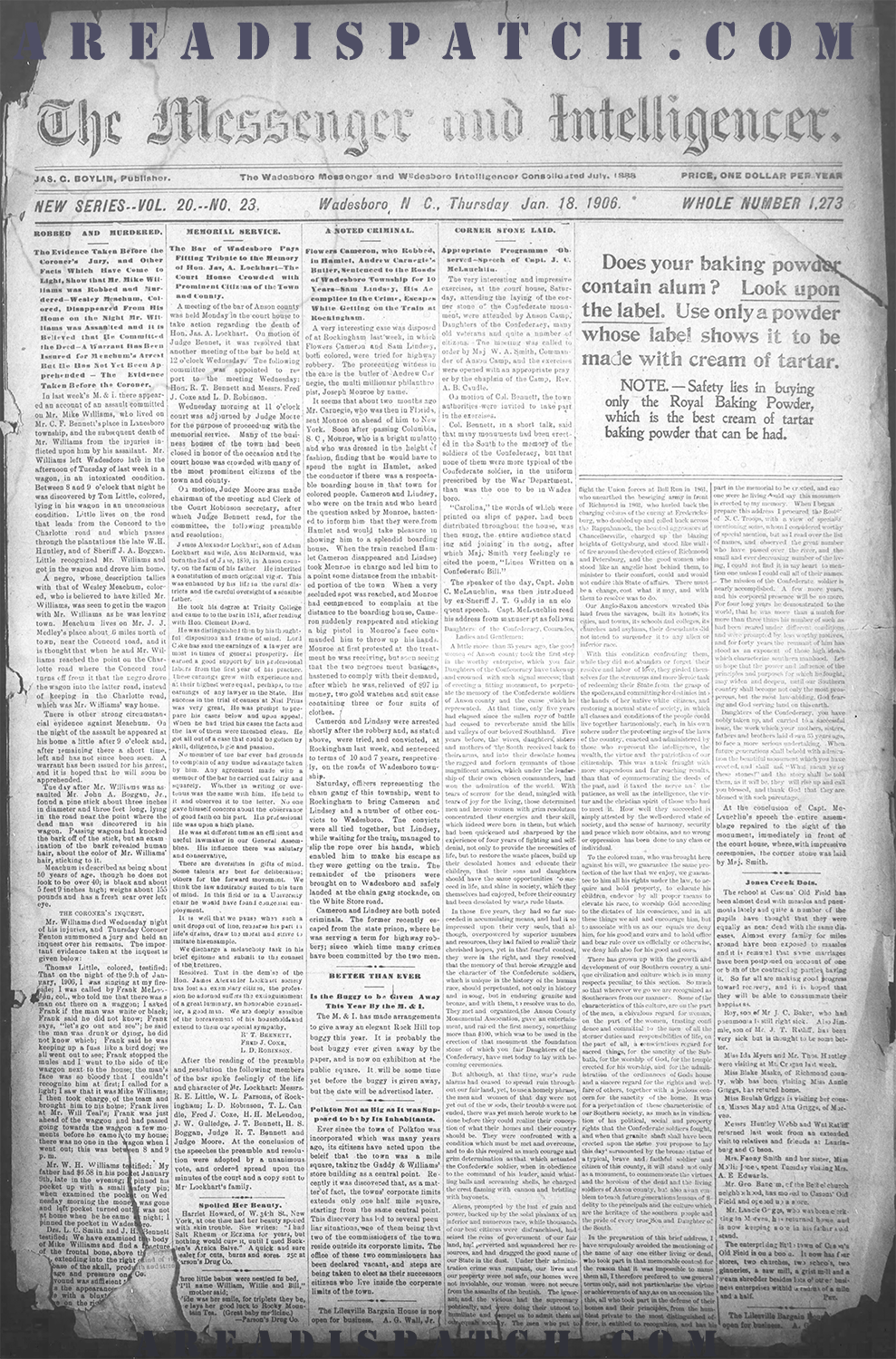
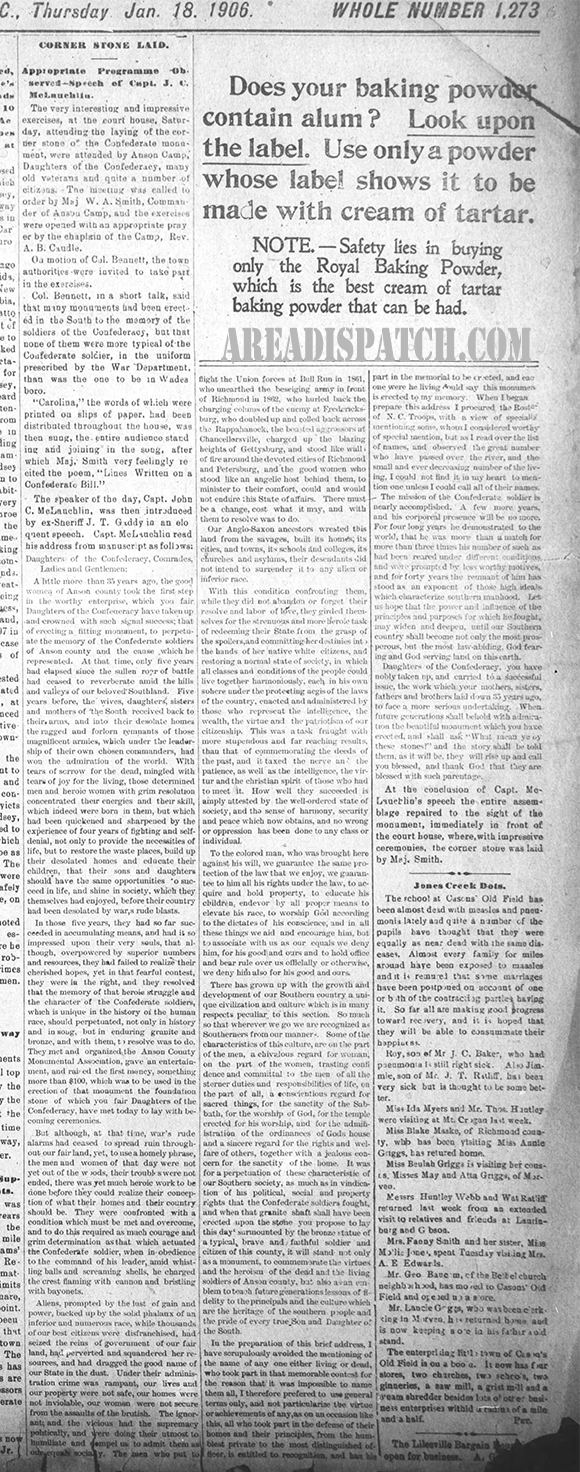
Additional Points of Concern
Aside from the obvious concerns with the language used,
concerns on the intent to prevent this from being widely known and
attributed to the Anson County Confederate Soldiers’ Memorial exist.
The need for a motion to invite the town ‘authorities’ to these ceremonies
raises questions on the town and county government (citizen) approval beforehand.

“On motion of Col. Bennett,
the town authorities were
invited to take part in the exercises.”
The apparent disregard for truth in history, and the continued efforts to cover lies of the past.
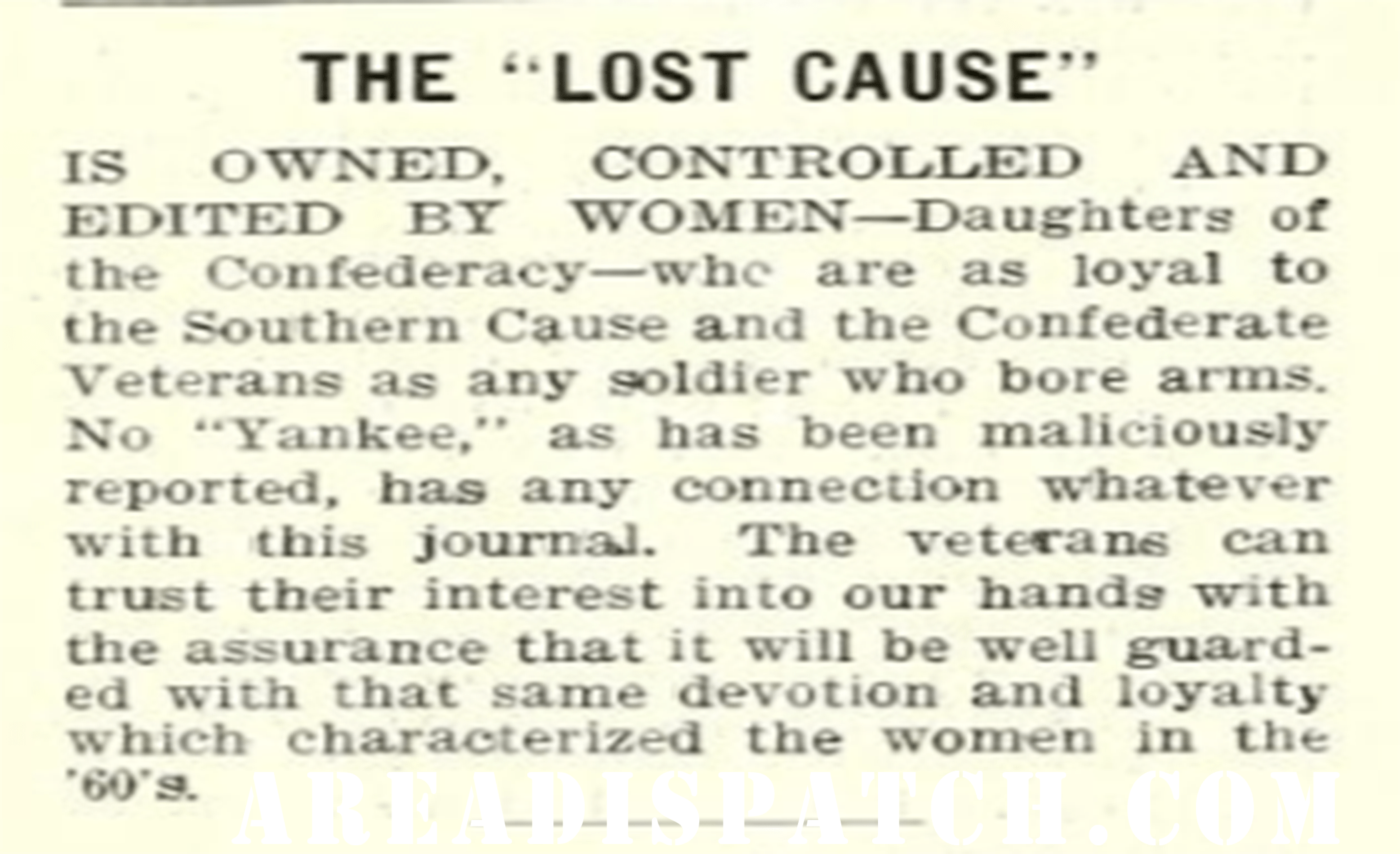
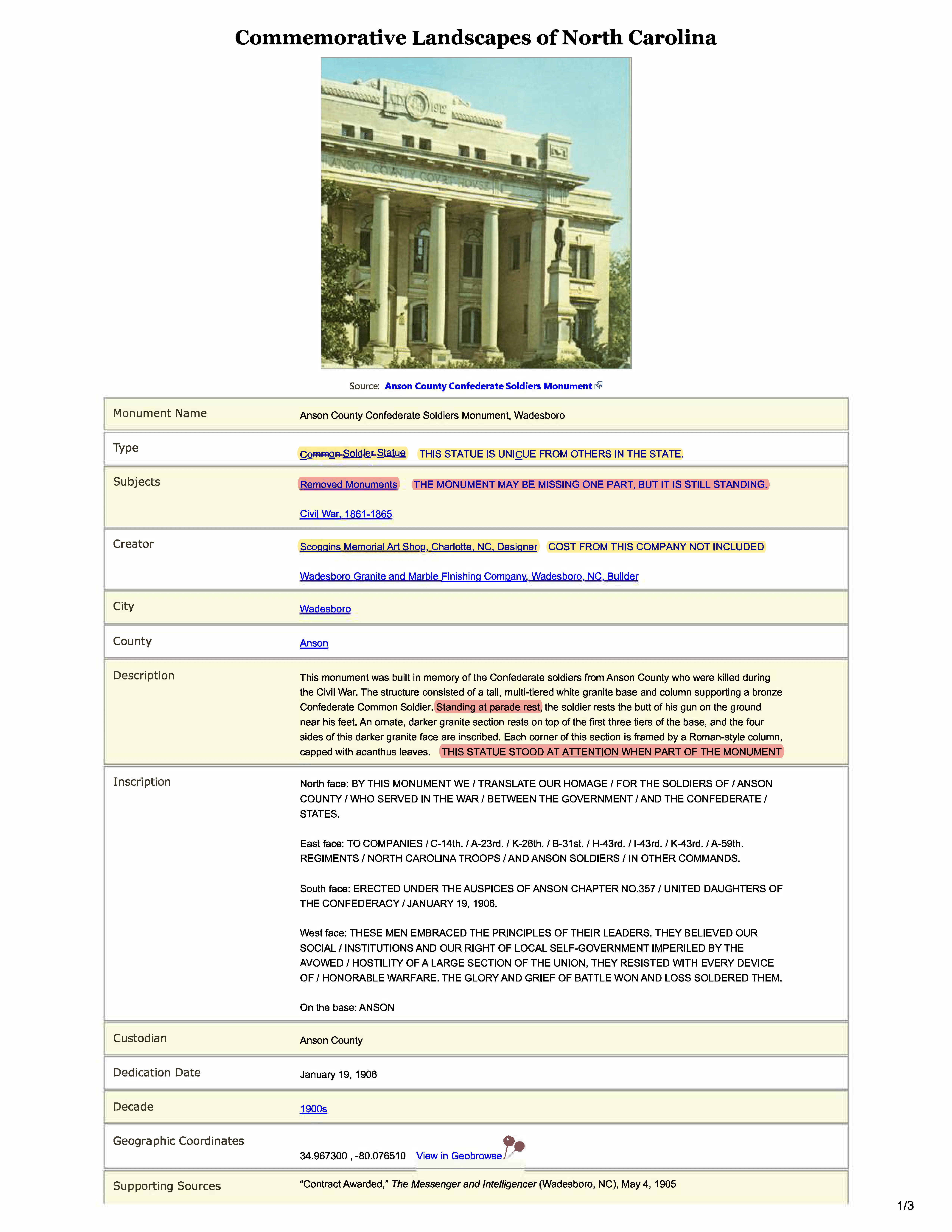
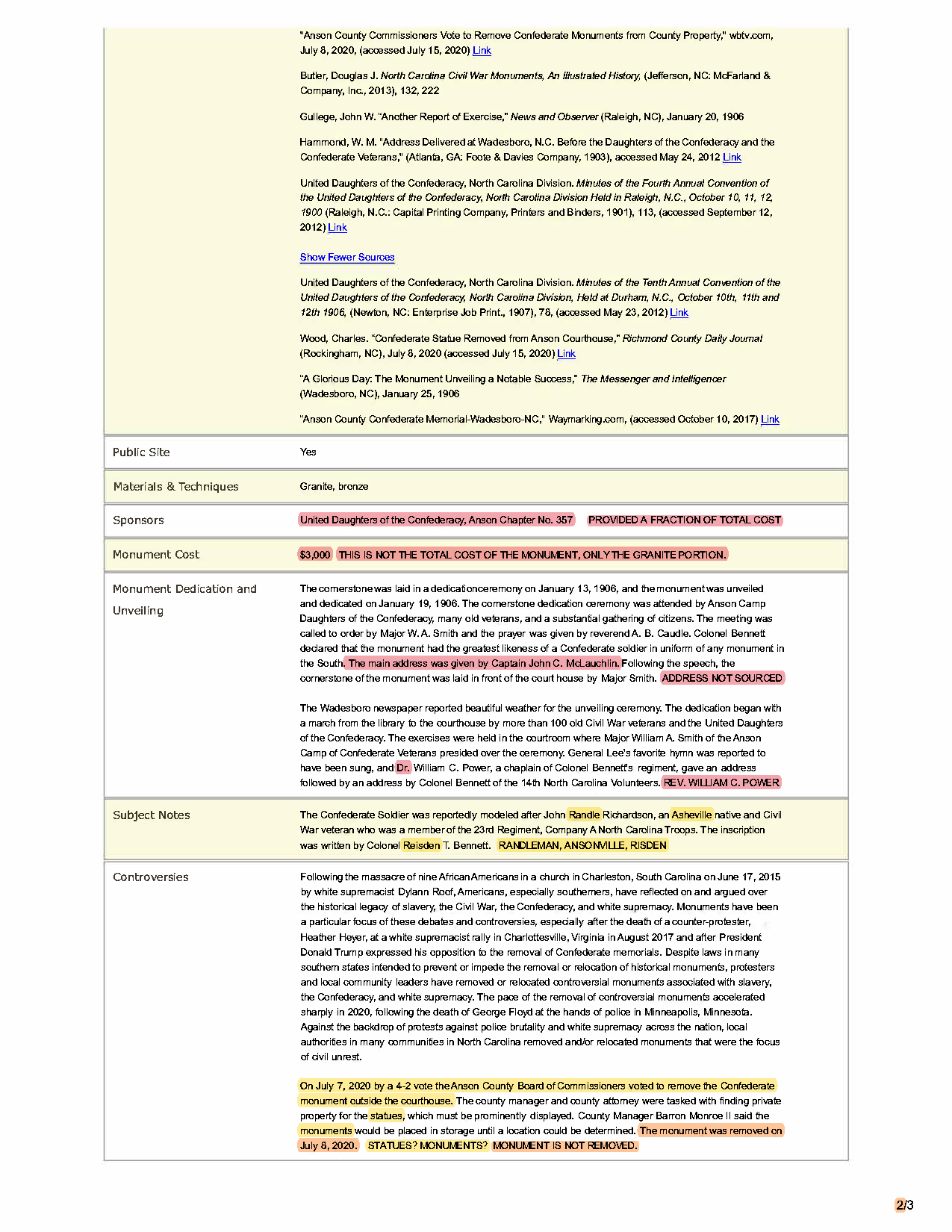

We’ve chosen to include the Messenger and Intelligencer from January 25, 1906, which covers the dedication ceremony conducted on January 19, 1906.
The language is significantly more subtle, but the theme is consistent with that of the cornerstone dedication and McLauchlin’s address. This was the ceremony that everyone attended. There was still a commitment to the ’cause’ of the Confederacy stated several times throughout the public addresses given during the January 19th ceremony, both by name and obviously implied. The speeches were prepared and only read by those giving the addresses that day. Rev. Power was a last minute replacement for the speaker that was originally planned to give that address. The writing of the addresses is very familiar, and with little doubt were crafted by William ALexander Smith. The writing is written mirroring his style and subtle references to racial supremacy, without saying the word. He would sometimes become bold and speak very openly about his extreme racist sentiment, but most of his public speeches at official functions were fairly tame. There was one event where he used the word ‘darkey’ to describe a slave that cooked of a couple from Richmond in a speech given.
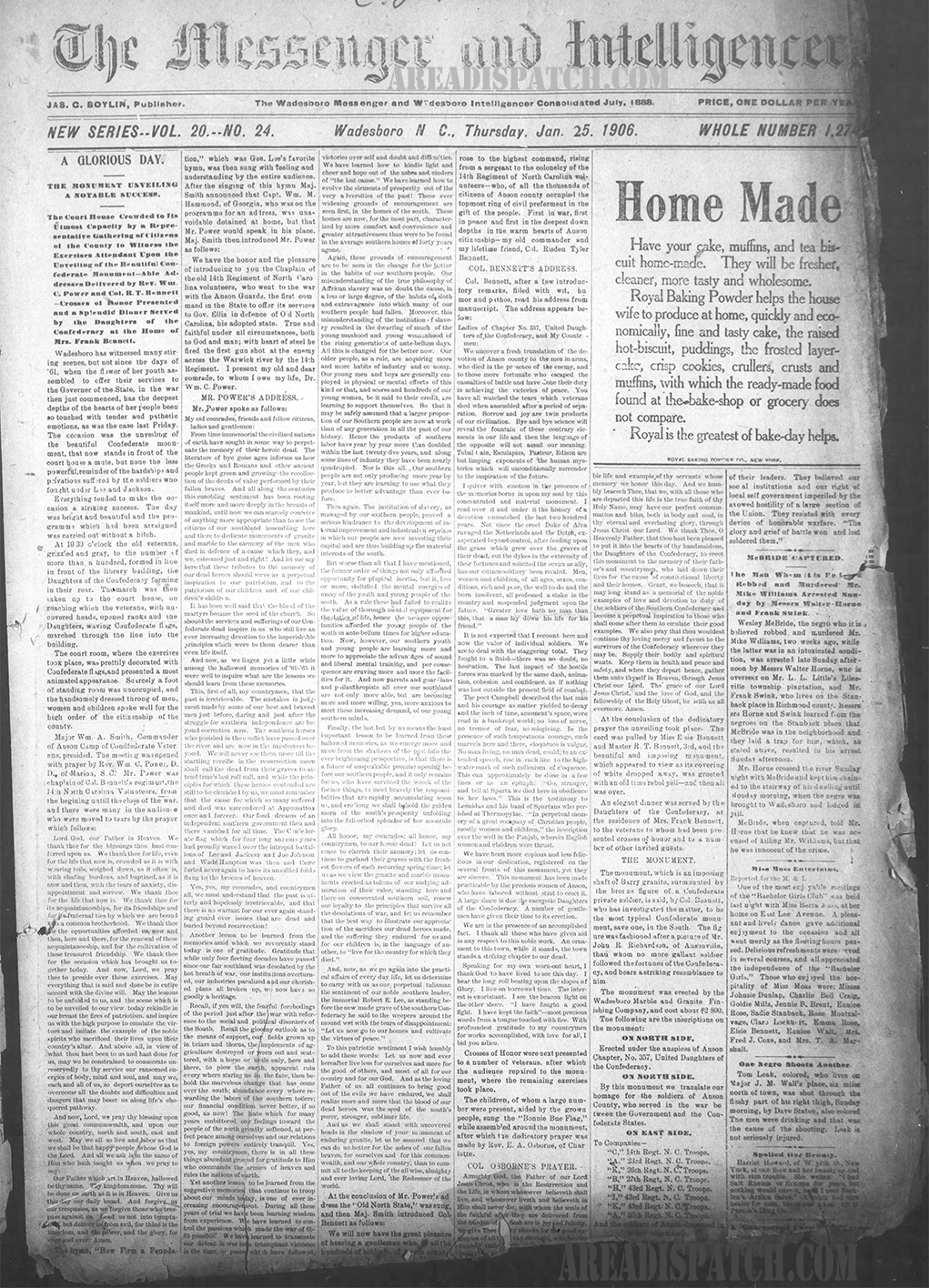
Curious about what’s in the ‘corner stone?’

We will never know.
It was replaced in 1949.

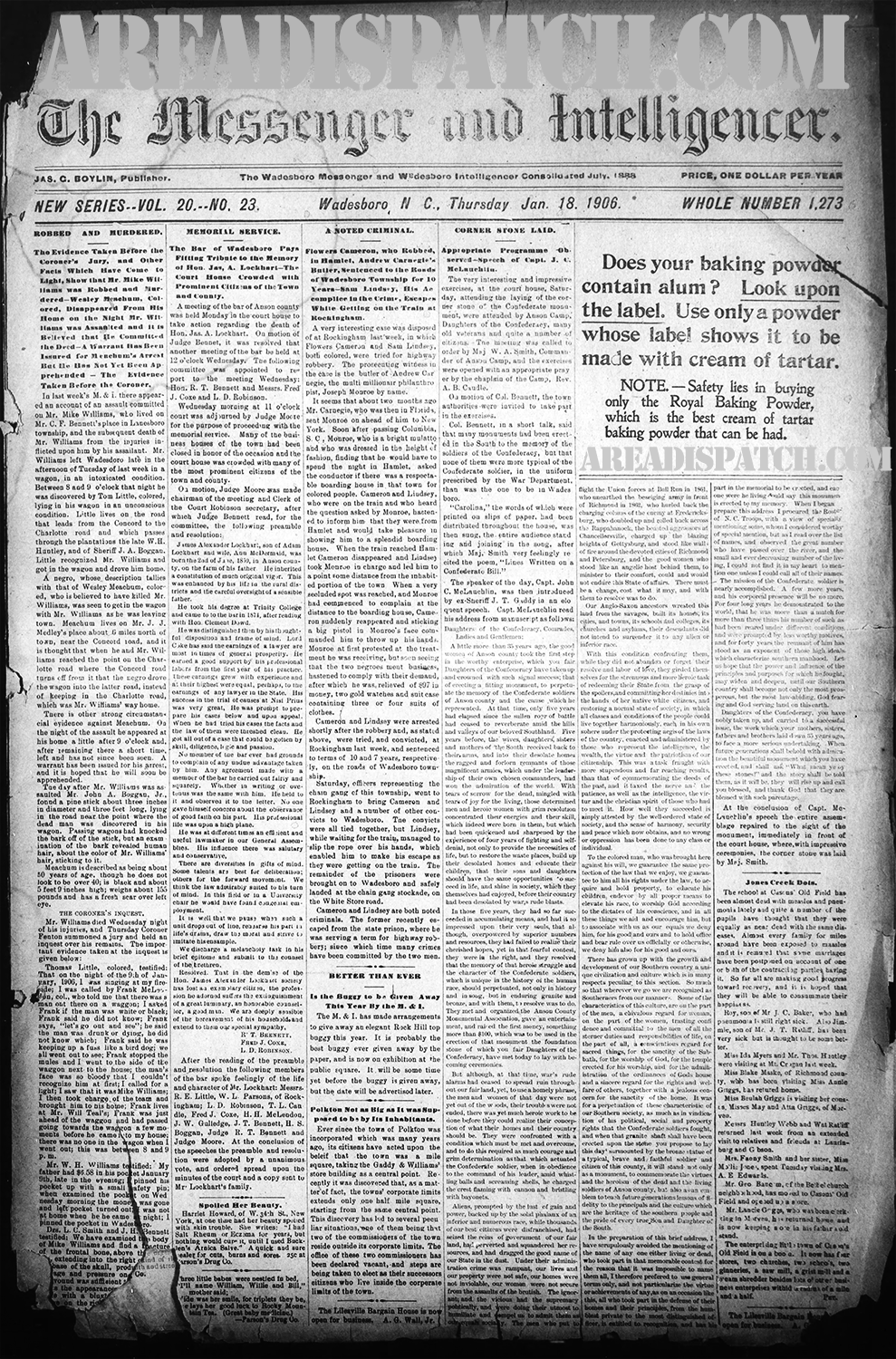
From The Dedication
Of The Full Monument:
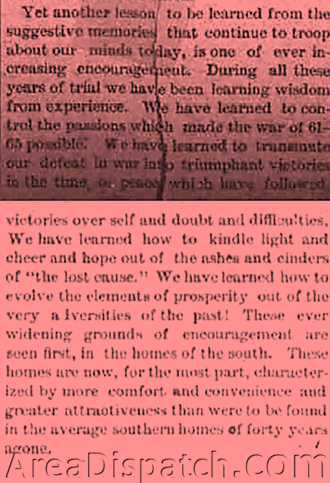
From Rev. Power’s address given at the
January 19, 1906 dedication ceremony.
Capt. William M. Hammond, of Georgia, was listed in the program for the event as the originally planned speaker, but the article says he was unable to attend, and Rev. Power gave an address. The article states that Risden Tyler Bennett read a prepared a prepared address, so it’s safe to assume that Rev. Power also read a prepared speech. It’s doubtful the words included in this article were an improvised speech by the former Confederate chaplain who admittedly took up arms during the war.
“It also has provided specific evidence that shows the true purpose
behind the monuments: protecting the Lost Cause narrative that would allow
the wealthy political elite descended from the antebellum South to retain power and prestige.”
